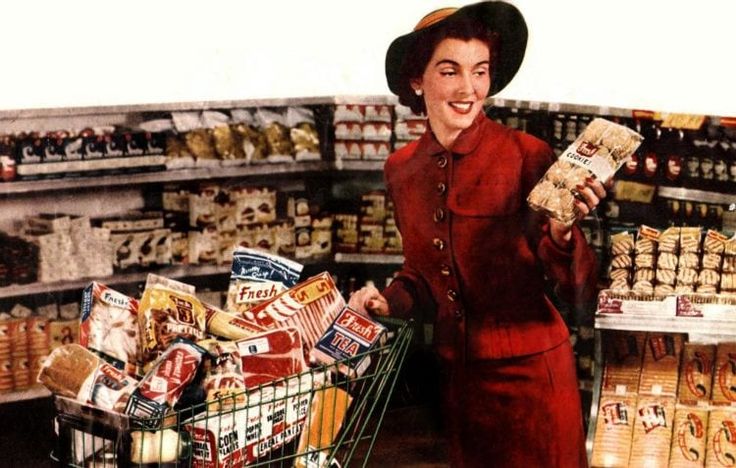"All in the Family" stands as a monumental pillar in the history of television. Airing from 1971 to 1979, this groundbreaking sitcom challenged societal norms and touched upon divisive issues, all while delivering laughs and unforgettable characters. In this article, we will take a deep dive into the world of "All in the Family," exploring its creation, impact, memorable characters, controversial themes, and lasting legacy.
(Watch the video below)

Genesis of the Show
Norman Lear, a visionary television producer, was inspired by the British sitcom "Till Death Us Do Part" when he decided to create "All in the Family." The British show, created by Johnny Speight, centered on a bigoted, working-class man and his liberal-minded son-in-law, sparking heated debates and discussions within families.
Lear saw the potential to adapt the show to an American context and set out to produce a sitcom that would confront divisive social and political issues head-on. The result was "All in the Family," which premiered on January 12, 1971, on CBS.
The Bunker Family
The heart of "All in the Family" was the Bunker family, with Archie Bunker (played by Carroll O'Connor) at its center. Archie was a blue-collar worker, a World War II veteran, and an opinionated man who held conservative, bigoted views. His strong-willed and sometimes abrasive personality clashed with the changing cultural landscape of the 1970s.
Archie's wife, Edith Bunker (played by Jean Stapleton), was a kind-hearted and often ditzy woman who provided a balance to Archie's harshness. Their daughter, Gloria Stivic (played by Sally Struthers), was a compassionate and progressive-minded young woman married to Michael "Meathead" Stivic (played by Rob Reiner), a liberal college student. Michael, with his educated background and strong convictions, was often at odds with Archie's conservative beliefs.
Addressing Social Issues

"All in the Family" was revolutionary in its approach to addressing social and political issues on television. It tackled subjects that were rarely discussed openly on prime-time television at that time, such as racism, sexism, homophobia, war, religion, and politics.

The show unapologetically showcased Archie Bunker's prejudiced views, making him a deeply flawed but undeniably human character. Through his interactions with Gloria, Michael, and other characters, "All in the Family" explored the generational and ideological clashes that were becoming increasingly common in American society.

The show's willingness to confront controversial topics head-on sparked both praise and criticism from audiences and critics alike. Some viewers praised the show for its honesty and courage in addressing real-world issues, while others condemned it for perpetuating stereotypes and promoting offensive language.
Archie Bunker: A Complex Character
Archie Bunker became one of the most unforgettable and polarizing characters in television history. His catchphrases, such as "Stifle!" and "Dingbat," became part of popular culture. Carroll O'Connor's brilliant portrayal of Archie earned him four Emmy Awards during the show's run and solidified his place as one of the finest actors in television.
Archie's character underwent development throughout the series. While his bigoted views remained a central aspect of his personality, the show also revealed his vulnerability and humanity. He grappled with personal challenges, such as losing his job or facing family struggles, which humanized him in the eyes of viewers.
Moreover, "All in the Family" didn't merely present Archie's views as unchallenged; it allowed other characters to challenge and question his beliefs, leading to thoughtful and heated debates on the show. This approach added depth to Archie's character and encouraged viewers to reflect on their own prejudices and biases.
The Impact of "All in the Family"
"All in the Family" had a profound impact on American television and society. It became the top-rated show on television for five consecutive seasons and won numerous awards, including several Emmys for Outstanding Comedy Series. The show's success opened doors for more socially conscious and issue-driven programming in the years that followed.
Furthermore, "All in the Family" inspired spin-off series such as "Maude," focusing on the liberal cousin of Edith Bunker, and "The Jeffersons," which followed the lives of George and Louise Jefferson, the Bunkers' African-American neighbors. These spin-offs further explored societal issues and expanded on the themes introduced in the original series.
The show's impact extended beyond the television screen. "All in the Family" contributed to cultural conversations and challenged prevailing attitudes about race, gender, and politics. By confronting controversial issues with humor and humanity, the series encouraged open discussions about the complexities of American society.
Controversies and Criticisms

"All in the Family" was not without its share of controversies and criticisms. The use of offensive language and the portrayal of bigoted views drew backlash from some viewers and advocacy groups. However, it's crucial to understand that the show's use of such language was intended to spark conversations and challenge societal norms rather than promote hate.
Norman Lear defended the show's approach, emphasizing that it sought to expose prejudice and promote dialogue rather than endorse discrimination. The program's willingness to address sensitive topics, albeit through the lens of a bigoted character, was a bold and groundbreaking move in the history of television.
Legacy and Enduring Relevance
The legacy of "All in the Family" endures to this day. The show's impact on television storytelling, character development, and its exploration of controversial topics set new standards for sitcoms. It paved the way for future shows that tackled social issues and depicted complex, flawed characters.

The show's influence can be seen in later sitcoms like "The Cosby Show," "Roseanne," "The Fresh Prince of Bel-Air," and "Modern Family," which continued the tradition of using comedy to address important social issues.
Conclusion
"All in the Family" was a groundbreaking television series that fearlessly tackled societal issues and provoked thought-provoking discussions among its viewers. Through its memorable characters, sharp humor, and willingness to address controversial subjects, the show became a cultural touchstone of the 1970s.

Archie Bunker, with all his faults and prejudices, remains an iconic and complex character in television history. His interactions with other characters allowed "All in the Family" to explore the generational and ideological divisions that have long been a part of American society.

The show's legacy lives on in the history of television, as it inspired future generations of writers, actors, and producers to use the power of entertainment to address important social issues and spark meaningful conversations. "All in the Family" continues to be celebrated as one of the most influential and important sitcoms of all time.



